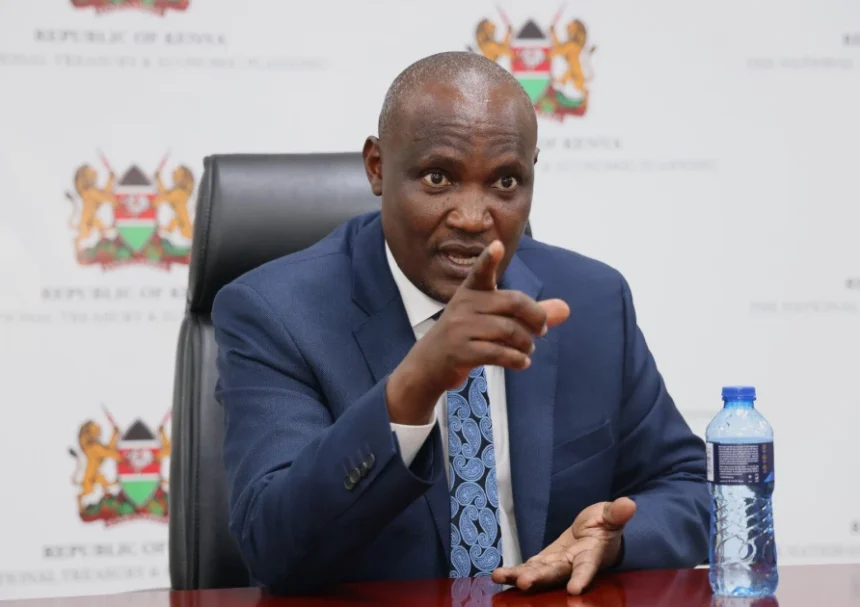Treasury Cabinet Secretary John Mbadi has defended the government’s plan to compensate protest victims and their families, describing the move as just, timely, and in the best interest of the Kenyan people.
Speaking during a fundraiser in Suna East, Migori County, Mbadi argued that the initiative is grounded in constitutional provisions, specifically allowing for the establishment of an emergency fund based on need.
He noted that the compensation plan reflects the government’s commitment to reconciliation, justice, and healing for affected communities.
President William Ruto on August 8 unveiled a team to develop a framework for compensation of Kenyans killed and maimed in protests since 2017.
This Presidential proclamation attracted criticism from opposition leaders led by Kalonzo Musyoka and Eugene Wamalwa.
Mbadi has now criticised the opposition for what he termed unnecessary and unproductive criticism of the plan.
“People have lost lives during demonstrations; it did not start with this government. People have been killed, maimed. This country is a country that must respect the rule of law and uphold human rights,” said Mbadi.
He challenged political leaders across the divide to focus on constructive engagement and support initiatives that are meant to benefit citizens rather than politicizing every government action.
“This is something that should not be criticised. People who were killed and dumped in river Yala were found when Eugene Wamalwa was a cabinet minister…when Matiang’I was the minister for Interior,” added the Treasury CS.
Wiper leader Kalonzo Musyoka and his DAP-Kenya counterpart Eugene Wamalwa had earlier proposed that the Kenya National Commission on Human Rights (KNCHR) should oversee the process as the excecutive cannot be trusted. The two faulted Ruto’s advisor Prof. Makau Mutua’s, who has been tasked with overseeing the process.
Also present at the event was Migori Governor Ochilo Ayacko, who called for a harmonious working relationship between members of the National Assembly and county governments. He stressed the importance of cooperation between the two levels of government to ensure efficient service delivery and the success of devolution.



